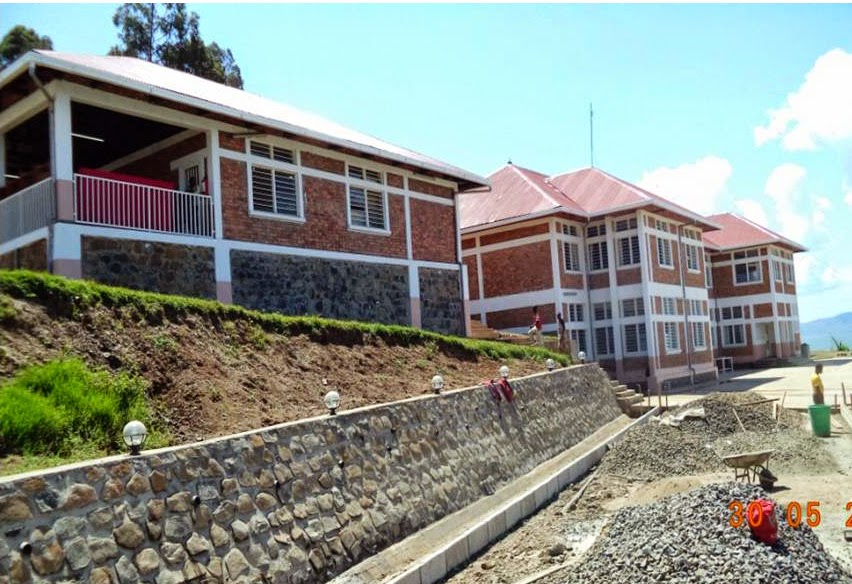An African consortium of international researchers and
growers, backed by policymakers in regional blocs of eastern and southern Africa has declared “war” against Fusarium
oxysporum f. sp. cubense tropical race 4 (Foc TR4), a highly
pathogenic form of the banana Fusarium wilt, previously confined to Asia, but
recently introduced to a farm in northern Mozambique.
FoC
TR4 (also known as Panama disease) is caused by a fungal strain that can
survive for decades in the soil, and once introduced to a country has never
been previously eradicated. Production of Cavendish types of banana which
dominate export markets, and some other local forms of banana, has been
devastated across Asia, no thanks to Foc TR4.
Its
introduction to Africa, probably by infected planting material by people, has
already had a massive impact on the commercial plantation in Mozambique, and
efforts are in place to contain the disease on this farm, to avert further
spread and to prepare other African countries against similar incursions, says
Dr Fen Beed, Plant Pathologist with the International Institute of Tropical
Agriculture (IITA).
To
manage the disease outbreak and to prepare African countries reliant on banana
for food security and income generation, a stakeholder workshop of the African
Consortium for Foc TR4 (AC4TR4) was held in Stellenbosch, South Africa, 23-24
April 2014, on the theme: Development of a Strategy to address the threat of
Foc TR4 in Africa. Representatives from the following organization took part:
Southern African Development Community (SADC), The Common Market for Eastern
and Southern Africa (COMESA), the East African Community (EAC), Association for
Strengthening Agricultural Research in Eastern and Central Africa (ASARECA),
Food and Agriculture Organization (FAO), National Plant Protection
Organizations (NPPO), IITA, Bioversity International, Stellenbosch University,
national research organizations, and commercial growers.
Recommendations from the workshop have now been harmonized.
A major output has been “The Stellenbosch Declaration on addressing the threat
of Fusarium oxysporum f. sp. cubense tropical race 4 (Foc TR4) to
banana production in Africa,” convened by SADC and COMESA, signed by member
states and endorsing institutions.
This
unique Declaration aims to combine forces to curtail the introduction and
spread of Foc TR4 in Africa and in particular to achieve the following:
1. Fully develop and implement a continental strategy under
the direction of an African Foc TR4 task force to contain the incursion of Foc
TR4 in the Nampula province of Mozambique and prevent similar incursions
elsewhere.
2.
Provide and enhance technical capacity on the continent, and to implement and
monitor phytosanitary systems, including wider use of International Standards
for Phytosanitary Measures (ISPMs) and other matters concerning plant health to
address the threat of Foc TR4 in Africa.
3. Report and map electronically by means of a web portal any new outbreaks of Foc TR4 in African
member states and communicate information on new outbreaks, successful
containment, and prevention initiatives.
4.
Establish recognition that Foc TR4 is a continental issue that requires
coordination and collaboration between
NPPOs, RECs, ICPs, research institutions, universities, governments, and
other relevant stakeholders throughout Africa by means of regular meetings and
consultations.
5.
Develop and apply appropriate diagnostic services, provide training, raise
awareness, monitor disease spread, and screen banana germplasm for Foc TR4
resistance for deployment by vulnerable banana growers.
6. Call
upon African and
international organizations to recognize and support the activities of
AC4TR4 by investing in research, awareness programs, human capacity, and
infrastructure development on the continent.
7.
Develop a regional Pest Risk Analysis document and a set of phytosanitary
measures to be enforced by member states to prevent the introduction and spread
of Foc TR4 and other quarantine pests of banana.
8.
Encourage governments in Africa to formulate the necessary legislation and to
implement the required activities to protect the crops of vulnerable farm
owners against destructive exotic pests.
.gif)
.jpg)




.jpg)



